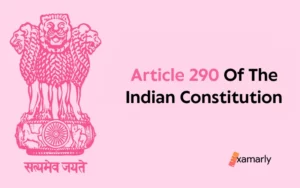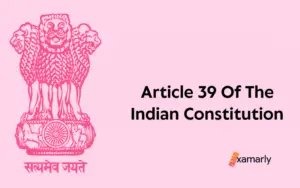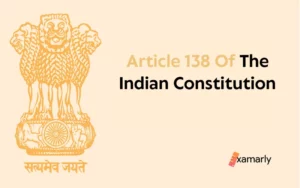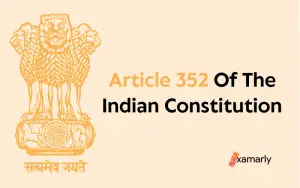The Civil Service Recruitment Committee conducts a CSE annually to recruit potential civil servants. Many IAS candidates think about Is UPSC exam tough, or why is it tough, What makes it difficult? However, there are some aspiring candidates that suspect whether it is tough.
The article addresses the question “Is UPSC exam tough?”, in a wholesome way.
- 7 Factors that Decide "Is UPSC Exam Tough"
- 1. Success Rate
- 2. UPSC Exam Process
- 3. UPSC Curriculum
- 4. Time Taken
- 5. Negative Marking
- 6. Candidates vs. Posts
- 7. Uncertainty
- Reasons why it requires Multiple Attempts for some Aspirants?
- What makes a Difference in the Level of Difficulty in UPSC?
- Is the UPSC Exam Tough: Conclusion
- FAQs on "Is UPSC Tough"
7 Factors that Decide “Is UPSC Exam Tough”
Some of the factors that decide the toughness of the papers are discussed below:
1. Success Rate
If you analyze the previous year’s rate of success, you will find how difficult or easy the Civil Services Examination is.
Every year 10 lakh candidates sit for the preliminary exam and only 25% of them are successful in clearing Prelims Exam. Out of the qualified candidates, around 1 lakh candidates or less are able to make the effort to count in Mains.
However, the rate of success is higher in Personality tests if compared to the previous two phases. If calculated, the overall success rate of this competitive exam is found to be 1% or less.
Thus the probability of clearing this is less, which makes it tough. Think about why the percentage of success is 1% or less? The pass percentage is low because most of the aspirants lose their patience level in mid, some get trapped in the false strategy, some lose their interest, and some get tangled up in current affairs and huge syllabus.
In short, if you are able to maintain a balance in your studies along with the right preparation strategy then you are set on the right track leading to winning the race of this difficult exam.
Related Article: UPSC Full Form.
2. UPSC Exam Process
The three crucial phases of the CSE Exam are the Prelims, Mains, and Personality Tests (or Interview stage). Each stage serves a specific purpose.
In the first stage, the fundamental competencies of the candidate are checked, at the next stage, multidimensional thinking, as well as command over the subject, is tested, and at the last stage, analytical skills of IAS aspirants for solving practical problems are put to tests.
The difficulty levels of prelims/mains and interviews are different from one another. In a way, the prelims eliminate 80% of the aspirants.
3. UPSC Curriculum
The IAS curriculum is extensive and worthy of your attention. Its nature is varied. Many topics covered by the UPSC Syllabus are outside the scope of your field of study. The following list outlines how the syllabus has hindered the students from achieving their objectives:
- The entire syllabus is comprehensive or spreads out into a broad array of subjects, even some that are outside the student’s area of expertise.
- The nature of the IAS Syllabus is diverse and multidimensional. This indicates that UPSC aspirants must be aware of current happenings throughout the world in order to write their answers in the IAS Exam in a multifaceted manner.
You Might Also Like To Read: IAS Full Form.
4. Time Taken
Another deciding factor of the toughness is the time spent in its preparation. The UPSC Exam needs almost a year-long preparation. You have to be passionate enough and keep patience and consistency in your hand to length the preparation effectively. Preparation does not mean the studying entire syllabus alone, it means following a circular path of studying, revision, practice, and evaluation.
5. Negative Marking
Objective-type questions are featured in the Prelims exam that required applicants to choose from one of four alternatives. For each wrong answer, one-third of a mark will be deducted. This simply indicates that guesswork will be harmful if you are not sure. Better follow the elimination technique.
In a short attempt, the questions which you are 100% sure otherwise negative marking may drive you towards failure.
Related Articles:
6. Candidates vs. Posts
Around 10 lakh of students sit for Union Public Service Commission exams which have around 900 vacancies. As a result, vacancies are significantly less than the number of individuals applying for this renowned exam, making this exam difficult.
7. Uncertainty
Aspirants are evaluated on multiple factors in different types of examinations so the results are quite uncertain. Due to its lengthy syllabus, prediction of any kind is not possible.
In addition to these deciding factors, there are other reasons which make it difficult for aspirants to crack this examination like lack of time management skills and general awareness among others.
You Might Also Like To Read: Time Management For UPSC Preparation.
Reasons why it requires Multiple Attempts for some Aspirants?
- Not aware of the motto behind the Preparation of IAS.
- Lack of motivation: If you are low in motivation then you are unable to concentrate on your studies which will slow your preparation and ultimately Civil Services seems tough.
- Lack of proper guidance: If there is no mentor who can direct you in the right direction then you may feel laggard and it becomes difficult for you to crack Civil Services.
- Complex Task: Keep your daily goals or tasks simple and uncomplicated. To achieve this, divide your daily goals into manageable, smaller parts.
- Don’t give ears to others: Don’t listen to what others say about the difficulty that one faces and fails despite being a pioneer in learning. As it’s not about the difficulty of the exam that one may be unable to clear but it’s their own loopholes in their preparation or strategy that pull them back from the success line.
Related Article: How To Stay Motivated For UPSC Preparation.
What makes a Difference in the Level of Difficulty in UPSC?
The following reasons are listed below that will help you to understand why is UPSC tough:-
- A positive outlook: A positive outlook is required throughout your Preparation. Your optimistic attitude will take you ahead by assisting you to crack a tough nut, even if you occasionally feel like it’s not your cup of tea, seems unachievable, or is tougher for you.
- Individual’s strategy: There is nothing to call an IAS Exam as tough or easy. It’s we who consider the Exam to be tough. It’s the individual’s preparation strategy that makes the difference in this exam.
- If you prepare sincerely with determination and dedication up to the benchmark then you are able to break the nutshell of the exam with ease and become one among the successful candidates.
- The subjects that candidates select when applying for the examination determine its level of difficulty. Like the student is not well-versed in the subjects chosen by them, the result will be poor. But if the student has chosen his or her favorite subject then he or she will perform well in it with full dedication and hard work.
Is the UPSC Exam Tough: Conclusion
To put it simply, whether or not the exam is challenging relies upon “How seriously you prepare for it”, “Are you dedicated for it”, “Are you able to give sufficient preparation time for UPSC Preparation”, and a host of other factors.
Just think while you are free “What do the toppers do during exam hours in an examination hall that creates a difference between achiever or non-achiever“. “What do they think about “Why it is tough” and how tough is the UPSC CSE exam?
With Examarly, your preparation for UPSC becomes easy as it provides you with a proper strategy that is personalized for you. With the right guidance from Examarly, your way to this prestigious service exam will find the guiding light. As it works on the principle of planning, testing, and daily current affairs with progress tracking, the level of competition doesn’t seem high.
In short, make your preparation consistent and reliable. Examarly chalks out a complete strategy for the civil service aspirants.
Related Article: How To Prepare For UPSC Prelims And Mains Together.
FAQs on “Is UPSC Tough”
Is UPSC a tough exam?
Yes, UPSC Civil Services Examination is considered one of the toughest exams in India due to its high level of competition and rigorous selection process.
What is the success rate of UPSC?
The success rate of UPSC Civil Services Examination is low, with only a few thousand candidates out of hundreds of thousands clearing the exam every year.
What is the difficulty level of UPSC?
The difficulty level of UPSC Civil Services Examination is considered high as it tests the candidate’s knowledge, skills, and aptitude across a wide range of subjects and domains.
How much time is required to prepare for UPSC?
The time required to prepare for UPSC Civil Services Examination varies from candidate to candidate and depends on several factors such as the individual’s baseline knowledge, preparation strategy, and the amount of time available. On average, it takes around 2-3 years of dedicated preparation to clear the exam.
What is the best strategy to crack UPSC?
There is no single strategy to crack UPSC Civil Services Examination, but a few key factors that can help include having a solid understanding of the syllabus, following a structured study plan, staying up to date with current affairs, practicing writing skills, and maintaining physical and mental health.






